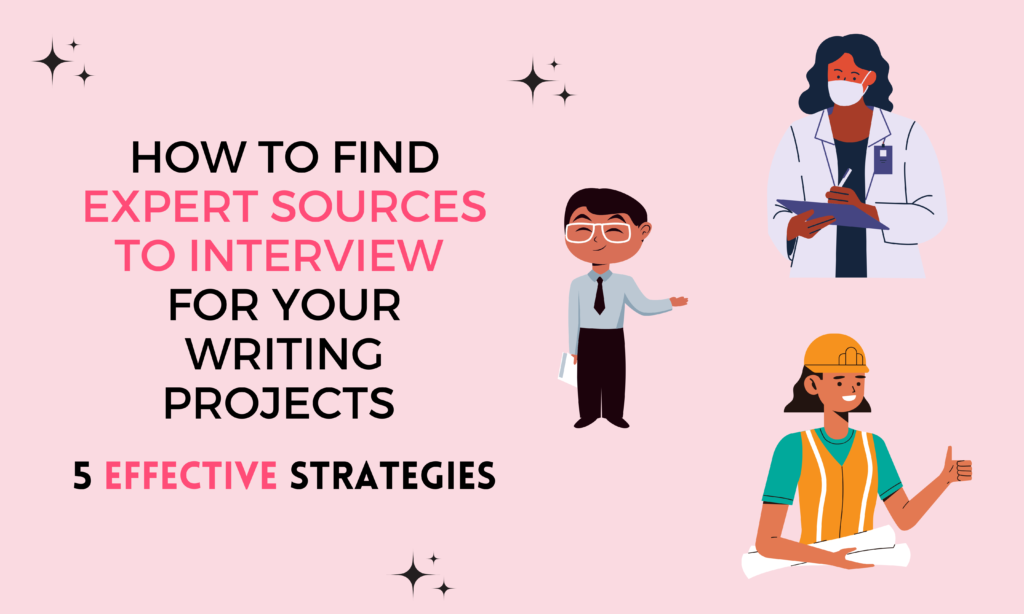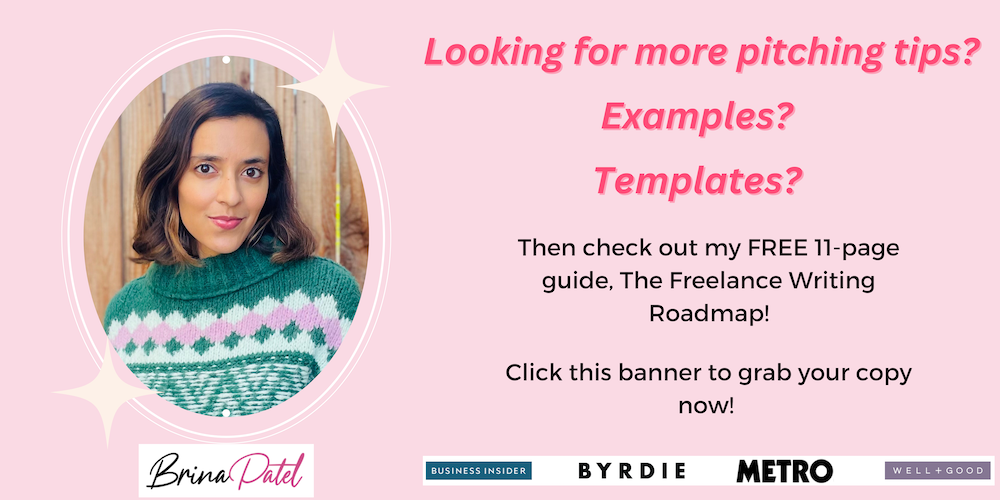So… You’ve got the perfect story idea in mind. It’s been simmering in your head for weeks —months — and you can’t wait to share it with the world. The only problem?
You don’t know who to interview to give your story that extra credibility factor. You know, a physician, academic, or mental health expert whose insights can support your story’s main arguments. Or someone with lived experience in the topic you’re discussing.
I found myself in the same dilemma when I first started out as a freelance writer in early 2021. But through experimentation, asking around, and good ol’ Google hacks, I found five ways to find expert sources to interview for my freelance writing articles. Here are the methods that have worked best.
(Side note — many of these tips can apply to podcasters, YouTubers, or other content creators, as well. So if that’s you, keep reading!)
1. Look through online publications
Whether you cover business, beauty, or travel, there are several large publications within each of these niches that run regular content (i.e. Forbes, Byrdie, Travel+Leisure). I’d recommend typing keywords related to your story idea into the site’s search bar. Then, based on the results, look through each of the published stories that relate to what you want to talk about.
You’ll notice that many of them are either profiles of a specific person, or include quotes or statistics from an expert in a particular field. Once you find a person’s name whose insights you might find helpful, click on the link embedded into the article (it’ll usually take you to their website or a social media profile). Then, reach out to them via email or DM and let them know what you’re writing about, and why you think their commentary would be helpful.
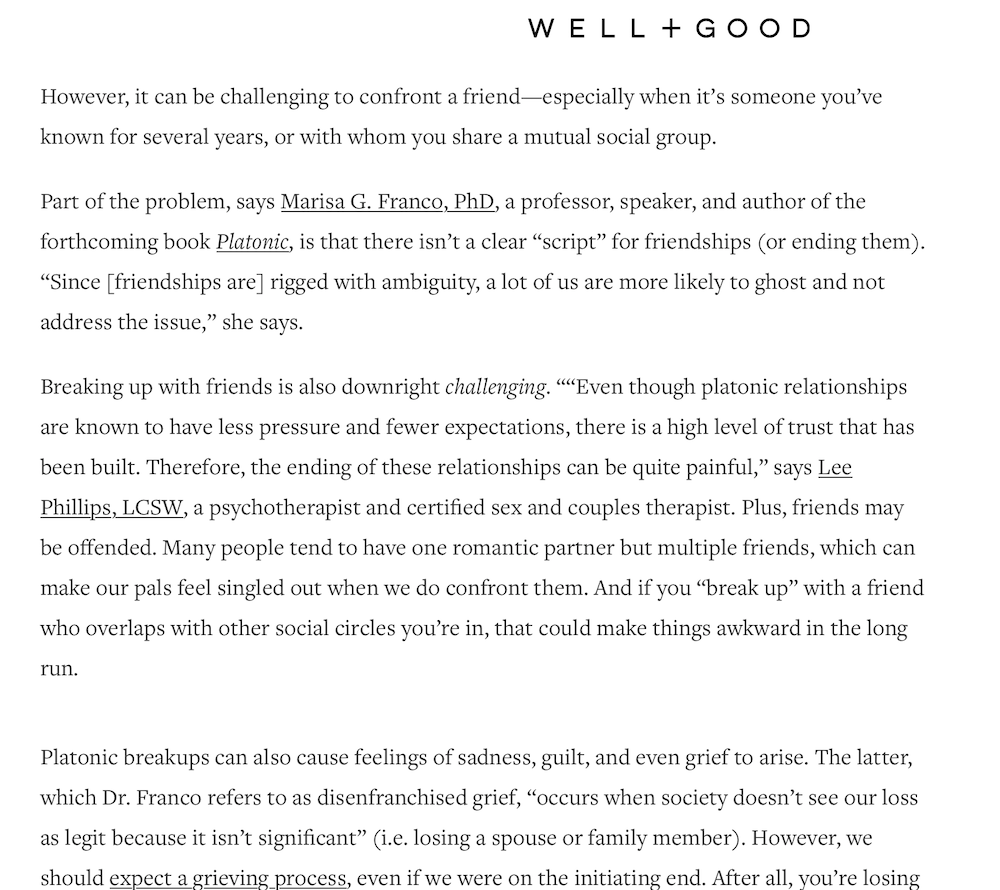
2. Use HARO
Known officially as Help a Reporter Out, HARO lives up to its name. You can sign up for a HARO account, which allows you to post queries about your story topic and the requirements you’re looking for in your interviewees.
You can specify the outlet you’re writing for, add a deadline, and choose two categories you’d like your query to appear in (i.e. Lifestyle and Fitness, Sports, Business and Finance). Once you submit your query, HARO then sends it out to tens of thousands of PR professionals, medical professionals, researchers, entrepreneurs, and experts from a variety of fields.
If someone feels qualified to respond to your pitch, they can respond to your query, and you’ll receive a reply by email. In my experience, about 60% of the pitches I receive are from underqualified individuals, and/or are irrelevant to my story idea. However, within the other 40%, I get responses ranging from “let’s schedule a call to discuss this further” to full-blown answers to the questions I listed in my query.
There’s no doubt that HARO has been key in connecting me with the experts I’m looking for. It’s saved me so much time and additional guesswork, and has allowed me to connect with dozens of individuals I wouldn’t have otherwise.
How you choose to follow up with your potential interviewee is up to you. But I do find that when I’m interviewing multiple individuals, it helps to send them the questions beforehand (unless they were all included in the query), and either have them respond by email or hop on a quick phone call to discuss.
A word of caution while using HARO: Always, always double-check to make sure that the sender’s email is legit. And ask them to provide links to their professional profiles (through their employer, own website, or LinkedIn) to verify that they have the credentials they claim.
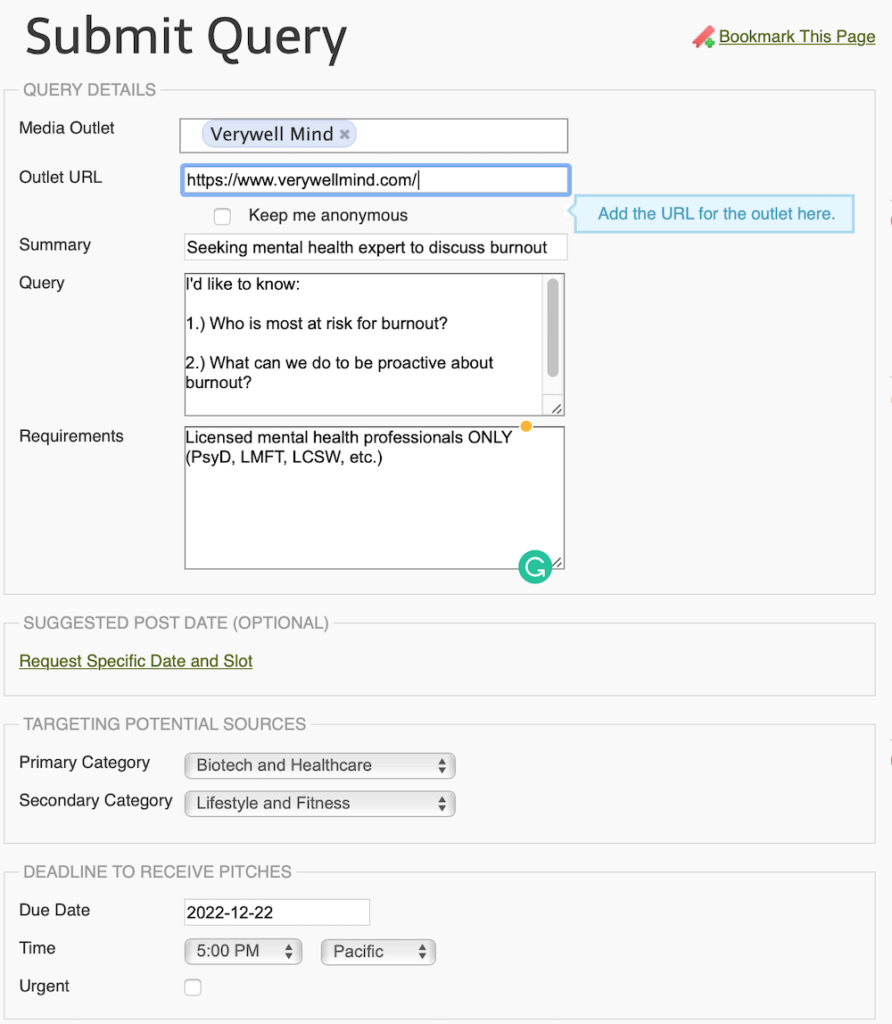
3. Try Twitter hashtags
Confession: I deleted Twitter. But back when I still used this social media platform, I found it effective for connecting with mental health experts (a topic I’ve covered a lot in my freelance work). However, you can use Twitter to find any expert, as long as you learn to employ the appropriate hashtags.
For more general purposes, the “#journorequest” or “#prrequest” hashtags signal that you’re looking for sources to interview. Type out a quick Tweet describing your story topic, the publication you’re writing for/project you’re working on, and the type of expert you’re seeking, with these hashtags included. In my experience, several PR professionals reached out to me when I used these hashtags, and offered to put me in touch with their clients.
You can also browse hashtags relevant to your subject area. For example, I’d look through “#TherapistTwitter” to scope out interesting mental health professionals who could provide insights on stories I was writing. But you can modify this based on your niche. Play around with the search feature and see what pops up!
4. Ask an editor
I know what you’re thinking… How do I ask an editor for sources? Especially when they’re the ones commissioning the story idea? (Which, as I’ve discussed before, should be as fully planned out in your pitch as possible.)
To be clear, this tip might not always work, especially if you’re pitching this editor for the first time. Or if it’s an extremely selective publication (i.e. The New York Times). But my suggestion is, if you need to interview three experts and can only find two yourself, it’s okay to ask an editor for a recommendation. This worked for me when I was writing pieces for both Well+Good and Wondermind, as the editors were well-connected to mental health experts that could speak to my story topic.
Editors have a robust Rolodex of connections in their industry, so the majority of them should be able to point you in the direction of someone who can help.
5. Conduct an intentional Google search
Chances are, we’ve already turned to Google, but when you use specific keywords, you’re more likely to happen upon the type of person you’re looking for. This can be especially beneficial if you want to interview somebody from a certain geographic location, or from a niche specialty.
Furthermore, Google also picks up on the sites that have more SEO leverage. So chances are, the sources you come across want to be found. This saves time and prevents you from entering the dreaded Google rabbit hole.
For example, while writing a piece on grief, I searched “grief therapist Sacramento,” and ended up finding a lovely marriage and family therapist to interview. However, when I typed in “therapist Sacramento,” it led to too many vague results and medical directories… And who has time to sift through all of those?!
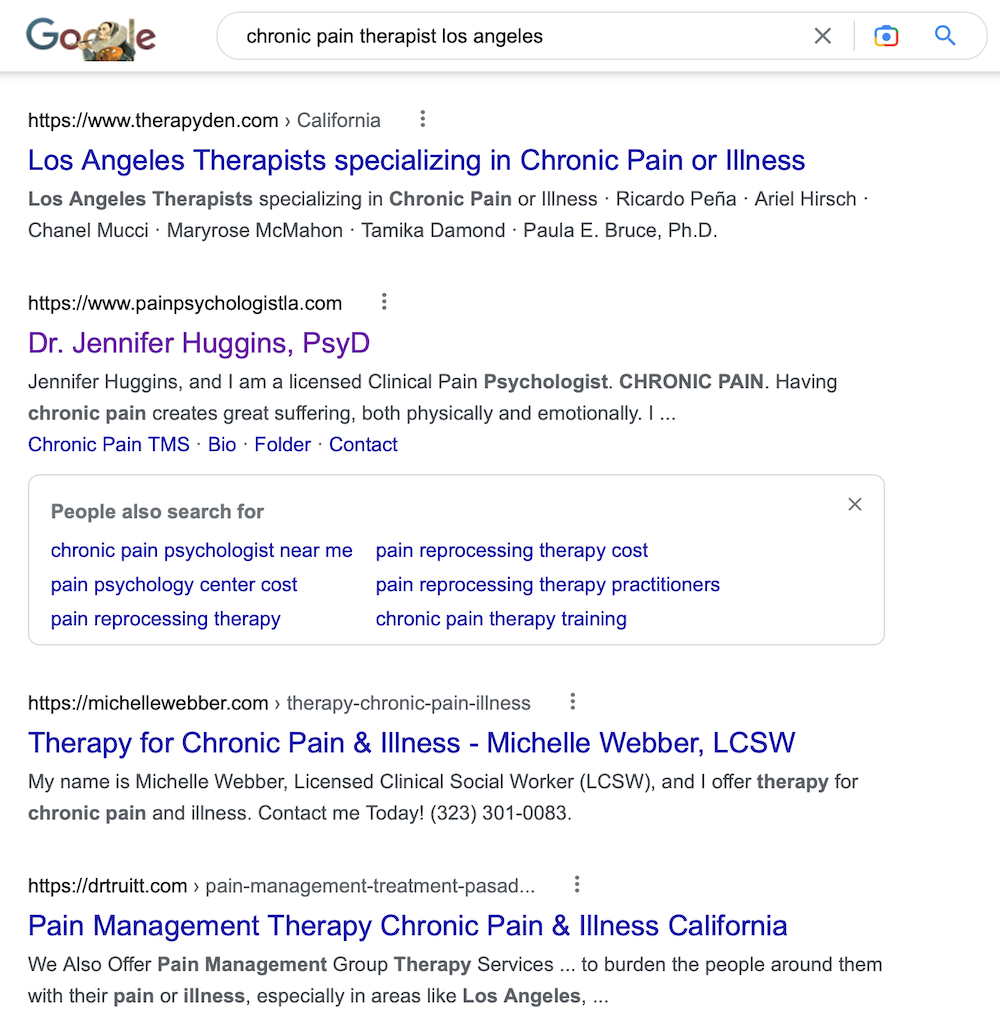
Concluding Thoughts
Finding expert sources to interview for freelance articles (or another creative project) can be a major hurdle in bringing your story ideas into the world. However, the tips above can help you connect with the sources you’re seeking, and give your story idea a boost of credibility.
To recap, here are the methods to use:
- Look through online publications
- Use HARO
- Try Twitter hashtags
- Ask an editor
- Conduct an intentional Google search
I’m curious if you’ve tried any of these methods yourself? Or is there a method that’s worked for you that I didn’t list here?
